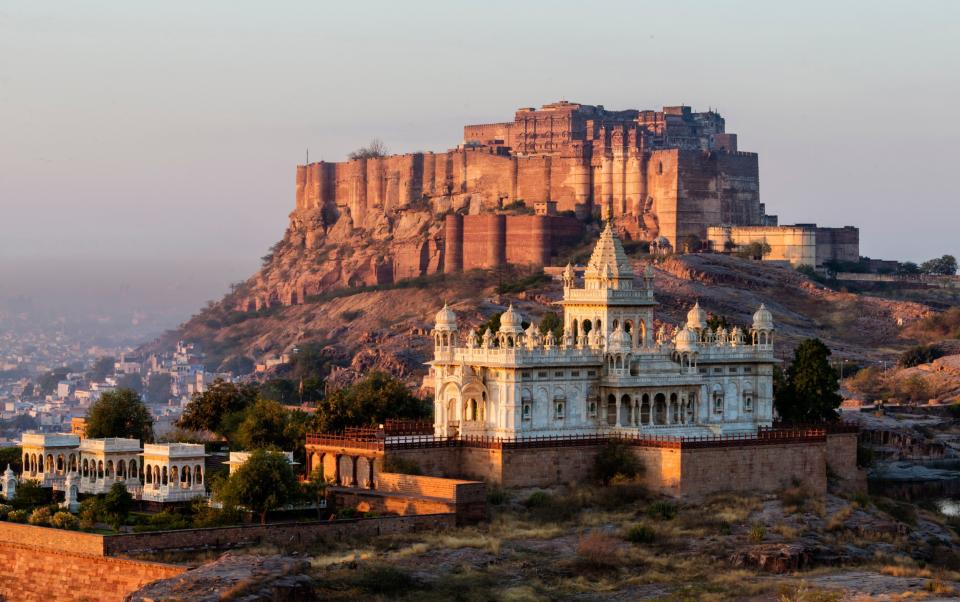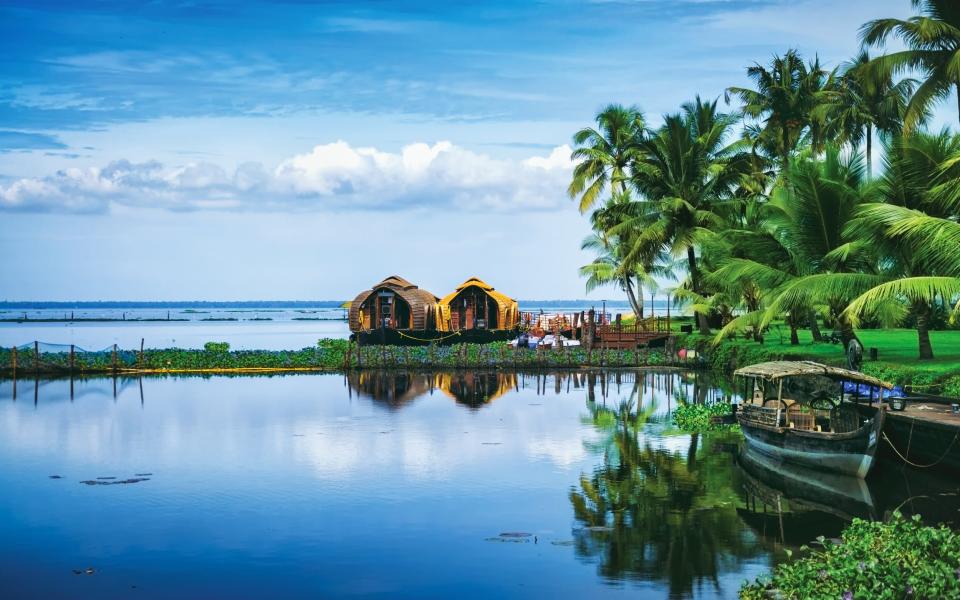Travel to India: latest Covid rules and practical guidance as the country reopens to UK tourists

India has announced it will reopen to selected leisure travellers from October 15, and further loosen its restrictions in November, as it finally restarts its international tourism industry.
However, under the country's current legislation, all Britons must quarantine for 10 days on arrival, and testing requirements also apply. For those who are planning to visit India, read on for the latest requirements and quarantine rules.
Can I go to India?
On October 15, India will reopen to foreign tourists – including Britons – provided that they arrive and depart on chartered (i.e. non-commercial) flights, and travel in an organised group tour. The rules will ease further on November 15, allowing tourists to visit independently on commercial airlines, with no requirement to join a group itinerary.
A statement from the Ministry of Home Affairs reads: “After considering various inputs, the MHA has decided to begin granting of fresh Tourist Visas for foreigners coming to India through chartered flights with effect from October 15, 2021.
“Foreign tourists entering into India by flights other than chartered aircraft would be able to do so only with effect from November 15, 2021 on fresh Tourist Visas.”
Britons may apply for visas via indianvisaonline.gov.in, and must declare their pre-travel Covid test results via the online Air Suvidha portal. Additional testing and quarantine restrictions also apply (see below).
All land and water entry points will remain closed to tourists. India was removed from the UK’s own red list in August.
How is the data looking in India?
India’s current seven-day case rate (as of October 12) is 9.63 per 100,000 citizens, which is very low. By comparison, the UK's own figure stands at 403.7.
However, the country’s vaccination programme is progressing slowly. India has now fully inoculated only 26.88 per cent of its population, with 68.35 per cent having received their first dose.

Will I be insured if I go?
The FCDO no longer advises against non-essential travel (i.e. holidays) to India based on its Covid risks, meaning travel insurance is easier to come by. However, some advisories are still in place for certain regions, including the tourist destinations of Pahalgam, Gulmarg and Sonamarg. For the full list of advisories, see gov.uk.
Do I need to be vaccinated to visit India?
As it stands, you do not currently need to be vaccinated to visit India. The same rules on quarantine and testing currently apply to all travellers (see below), regardless of their inoculation status.
Do I need to self-isolate on arrival?
Under its current legislation, India requires all British travellers to quarantine on arrival for 10 days, regardless of their vaccination status. The Ministry of Tourism has given no indication whether this rule will lift when tourism visas recommence.
However, Indian media attest that the current rules are merely – in the words of Telegraph India – “tit for tat”, after the UK Government imposed its own 10-day quarantine on Indian travellers. In September, when the UK announced it would drop quarantine requirements for a number of destinations, India was absent from the list – leading its foreign secretary, Harsh Vardhan Shringla, to threaten "reciprocal measures". On October 4, India introduced its mandatory 10-day quarantine for all British travellers.
On October 11, the UK relaxed its rules on Indian arrivals, and now requires no quarantine for fully vaccinated travellers. Perhaps in the wake of this decision, India will relax its “reciprocal measures” once again, but no changes have yet been confirmed.
In addition to a pre-arrival PCR test, Britons must test negative twice before they can leave quarantine, the Foreign Office reports:
Pre-Boarding: All travellers should (i) submit self-declaration form on the online Air Suvidha portal before the scheduled travel (ii) upload a negative COVID-19 RT-PCR report. This test should have been conducted within 72 hrs prior to undertaking the journey. Each passenger shall also submit a declaration with respect to the authenticity of the report and will be liable for criminal prosecution, if found otherwise.
On arrival: Travellers irrespective of their vaccination status, arriving in India will undertake Covid-19 RT-PCR test on arrival at airport and on day eight after arrival at their own cost, and will undergo mandatory quarantine at home or at the destination address for 10 days after arrival in India.
All such passengers under isolation/quarantine shall be regularly monitored by State/District Health Authorities.

Do I need to take a test before travelling back to England?
No, not if you are fully vaccinated. If you are not double-jabbed, you must take a lateral flow test 72 hours before arriving in the UK and have an official certificate to prove it. If you fail to do so, you will be denied boarding, or risk a fine of up to £500 on arrival back in the UK. You can find the Government's rules on testing before departure, here.
It is also compulsory to fill out a Passenger Locator Form to present to your airline and at the border.
Do I need to self isolate on my return to England?
Travellers who have received two doses of a Covid vaccine can avoid quarantine on their return home, but still need to take a test on day two. This will be downgraded to a non-NHS lateral flow test for vaccinated arrivals from October 24.
Those who haven't had both jabs must self-isolate at home for 10 days. You will also need to take a PCR test on the second and eighth days of your self-isolation. If you opt in for Test to Release, you can take an extra test on day five to exit quarantine (if your result is negative), but will still need to take the further test on day eight.

